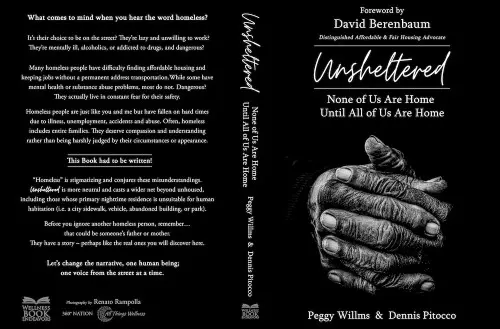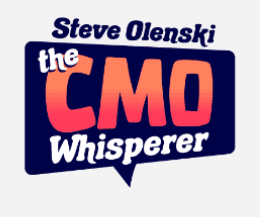Invisible In Plain Sight: We Saw John
The only thing worse than being homeless is feeling invisible and forgotten.
Out of Sight, Out of Mind
The homeless often feel invisible, allowed to plummet through widening holes in the social safety net, then hidden in doorways from which people avert their eyes. Homelessness sits at the nexus of stigma, isolation, and vulnerability: though homelessness can be highly visible, passersby often ignore individuals or subject them to stares, reinforcing their “outsider” status either by making them invisible or making them visible only through negative attention.
Have the Homeless become so Invisible that We wouldn’t notice our own Family Members living on the Streets?
Watch the astonishing results in the above video, which was originally produced as a social experiment, geared at revealing how we, as a society, see our homeless neighbors, but has resulted in the formation of a foundation to raise investments and awareness on homelessness.
We Saw John
Walking down the streets of Edinburgh, Scotland recently, my wife Ali I were crossing a bridge when we came upon John. Unlike many homeless encounters we had, John was just different. He didn’t have a sign asking for anything, but rather a very small cup –likely a reflection of his low expectations. Before putting any Money in his cup, we introduced ourselves and asked for his name and his permission to take his picture. Much to our surprise, his face simply lit up with a big smile – and he said:
“Thanks for seeing me and talking to me…”
While we then put some money in his small cup, it was abundantly clear that it wasn’t the picture we took (see featured image above) or the $$$, but the fact that we simply made eye contact, asked his name and engaged with him. Why? Because he was no longer invisible – a word that has come up repeatedly as we dig deep into the homeless culture worldwide. Just as we began to speak with John more, the skies opened and the torrential rains came, with everyone dashing off the bridge and off the streets, including John. Once the rain stopped, we ventured back to John’s special “spot” on the bridge, but he was gone, having moved to another safe haven –although certainly not forgotten, as our brief encounter reaffirmed how little it takes to make a difference for the many “Johns” across the world.
Let’s Make The Invisible Visible
Acknowledge them. Treat them as human beings by making eye contact and saying hello. If the situation is safe, take a little extra time to engage in conversation. Taking time to talk to a homeless person in a friendly, respectful manner can give them a sense of civility and dignity.
It’s Free, and it makes a big Difference for Everyone
It’s something you take for granted every day. Connecting with people during a conversation, meeting their eyes, and feeling seen. For you, it probably happens dozens of times a day, but for people living on the street, it’s a rare occurrence.
More often, people shuffle by quickly, looking absolutely anywhere but at the invisible person they’ve chosen to ignore.
It’s a common behavior, but what’s strange is the number of people who don’t fully realize what they’re doing. Stranger still is the people who think the other person won’t notice they’re being ignored. The whole, “oh my, I’ve just received a very important text that requires my full attention for the next 30 seconds” routine isn’t as convincing as you think it is. Especially when it’s been done by the last 20 people who walked by.
Making eye contact with homeless people instead of ignoring them is safe, easy, and costs absolutely nothing. Once you get good, you can even throw in a smile, nod, or friendly wave. It’s amazing how far a simple acknowledgment of another person’s presence can go toward helping that person feel seen rather than invisible and preventing dehumanization.
If you only ever do one thing to improve your interactions with the homeless people you meet, let this be it.
The Harm of Withholding Eye Contact
By now you might be thinking, “What’s the big deal?” It’s hard to imagine that not engaging with one person on the street is causing any real harm. After all, you pass plenty of non-homeless people every day that you don’t acknowledge or make eye contact with.
You can’t really appreciate the scale of the problem unless you experience it yourself. But most people behave exactly the same way, and the effect is cumulative. Imagine a day when none of your coworkers would look at you, your family all ignored you when you tried to speak to them, and even strangers on the street went out of their way to avoid you.
How would that feel? Now imagine it happening every day.
After a while, homeless people who are subjected to this treatment begin to feel as if they were ghosts watching the world but not able to fully participate in it. If they try to strike up conversations, their words fall on deaf ears. They’re ignored, dehumanized, and invisible.
It’s much easier to just shut your eyes, close your ears, wall off your heart, and keep on walking by. But as much as homeless people need to be seen, the rest of us need to see them even more.
So, the next time you see a homeless person, resist the urge to ignore them. Make eye contact. It’s quite literally the least you can do. But we can all do more, by debunking the myths and changing the narrative when it comes to the homeless on the streets around the world.
Let’s change the narrative, starting with the word “Homeless” which is stigmatizing and conjures up misconceptions while carrying a negative connotation. “Unsheltered” is more neutral, and casts a wider net beyond unhoused, including those whose primary nighttime residence is unsuitable for human habitation (i.e., a city sidewalk, vehicle, abandoned building, or park).
It’s time for real stories to be told by the unsheltered and by those who can speak about and for them so we can debunk the myths “for good”….
—WORLDWIDE CALL FOR SUBMISSIONS—

CLICK FOR PRESS RELEASE ► Breakthrough Unsheltered Anthology Book Series Launched
WE NEED STORYTELLERS, including:
- Those who are currently unsheltered/homeless, or have been unsheltered/homeless in the past.
- Have been affected indirectly/a degree removed from being unsheltered/homeless (family members, friends,
co-workers, etc.). - Are familiar with the personal and global effects of the unsheltered/homeless population.
- Organizations and causes that are on the ground facing daily struggles with those who are unsheltered/homeless and who have stories to tell.
Originally Published on https://www.bizcatalyst360.com/author/dennisjpitocco/

























